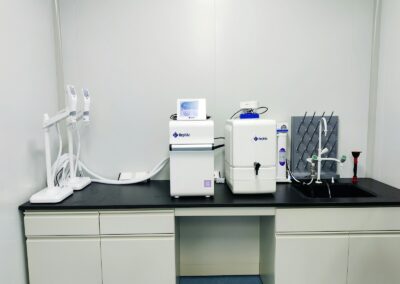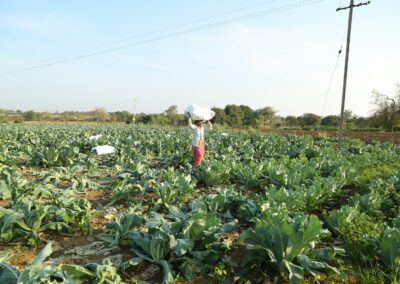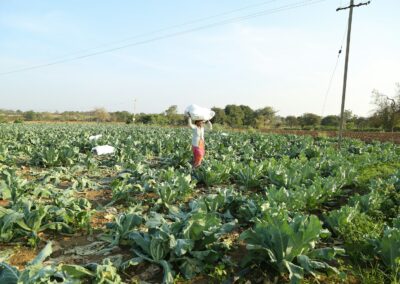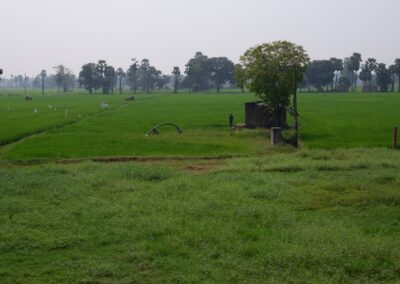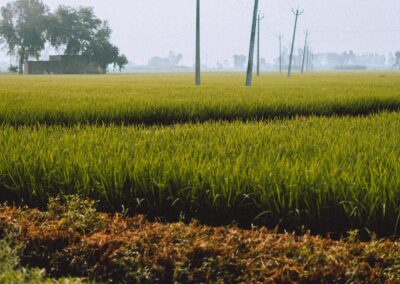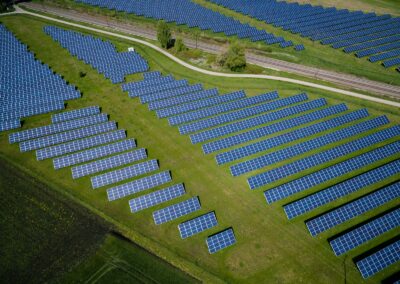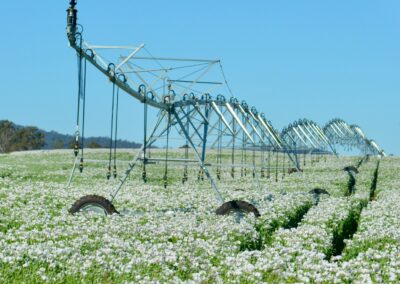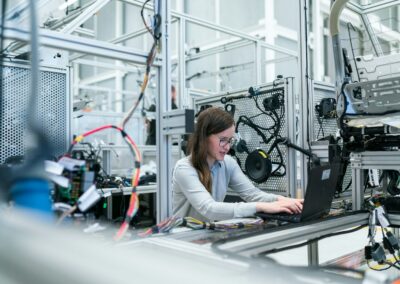Revolutionizing Water Management with Smart Irrigation Systems
Enhancing Efficiency Through Advanced Technology
The advent of smart irrigation systems represents a pivotal shift in water management, particularly in arid and semi-arid regions such as Saudi Arabia and the UAE. These systems leverage advanced technologies, including sensors, data analytics, and artificial intelligence (AI), to optimize water use in agriculture. By integrating soil moisture sensors, weather data, and real-time analytics, smart irrigation systems can deliver precise amounts of water based on the specific needs of crops. This targeted approach significantly reduces water wastage compared to traditional irrigation methods. For instance, in regions like Riyadh and Dubai, where water scarcity is a pressing concern, smart irrigation systems enable more efficient use of limited water resources, promoting sustainable agricultural practices and enhancing crop yields. The ability to monitor and adjust irrigation schedules in real-time ensures that water is applied only when and where it is needed, thereby improving overall water management efficiency.
Leveraging Artificial Intelligence for Precision Irrigation
Artificial Intelligence (AI) plays a crucial role in the evolution of smart irrigation systems. AI algorithms analyze vast amounts of data collected from various sensors and weather stations to make real-time decisions about irrigation needs. This level of precision allows farmers to optimize irrigation schedules, reduce water consumption, and minimize environmental impact. For example, AI can predict weather patterns and adjust irrigation schedules accordingly, preventing overwatering before rainfall occurs. In dynamic environments like Dubai’s rapidly expanding agricultural sectors, AI-driven smart irrigation systems offer a significant advantage by adapting to changing conditions and ensuring that water resources are used judiciously. The incorporation of AI into irrigation systems not only enhances efficiency but also supports the broader goals of sustainability and resource conservation.
Promoting Sustainability Through Smart Technology
Smart irrigation systems contribute significantly to environmental sustainability by reducing water consumption and promoting responsible agricultural practices. In regions with limited water resources, such as Saudi Arabia, the use of smart irrigation technology helps conserve water by ensuring that irrigation is aligned with actual crop needs rather than relying on fixed schedules. Additionally, these systems can integrate with renewable energy sources, further enhancing their sustainability. For instance, solar-powered irrigation systems can reduce reliance on conventional energy sources, decreasing the overall environmental footprint. By promoting efficient water use and reducing wastage, smart irrigation systems play a vital role in advancing sustainability and supporting environmental conservation efforts in arid and semi-arid regions.
Integrating Blockchain for Data Security and Transparency
The integration of Blockchain technology into smart irrigation systems offers a new dimension of security and transparency. Blockchain can provide an immutable record of data related to water usage, irrigation schedules, and system performance. This transparency is crucial for stakeholders, including farmers, water managers, and policymakers, as it ensures accountability and facilitates better decision-making. For example, in a region like Saudi Arabia, where large-scale irrigation projects are common, Blockchain can track water distribution and usage across various sectors, promoting efficient management and reducing conflicts over resource allocation. The application of Blockchain in smart irrigation systems not only enhances data integrity but also supports the development of more transparent and accountable water management practices.
Expanding Applications and Future Innovations
As technology continues to advance, the applications of smart irrigation systems are expected to expand and evolve. Future innovations may include the integration of more sophisticated sensors, enhanced AI capabilities, and greater connectivity through the Internet of Things (IoT). These advancements will enable even more precise and adaptive irrigation strategies, tailored to specific crop requirements and environmental conditions. For instance, future smart irrigation systems may incorporate real-time data from satellite imagery to monitor large-scale agricultural areas, further improving water management efficiency. In rapidly growing urban and agricultural areas like Dubai, these innovations will play a crucial role in managing water resources effectively and supporting sustainable development goals.
Supporting Economic Growth and Resource Management
The adoption of smart irrigation systems has the potential to drive economic growth by improving agricultural productivity and resource management. Efficient water use not only enhances crop yields but also reduces operational costs for farmers. In regions such as Riyadh, where agriculture plays a significant role in the economy, the implementation of smart irrigation technology can lead to increased profitability and economic stability. Moreover, by optimizing water resources and promoting sustainable practices, smart irrigation systems contribute to long-term resource management and environmental stewardship. This economic and environmental synergy supports the broader goals of sustainable development and contributes to the overall well-being of communities and economies in the region.
#SmartIrrigation #WaterManagement #Sustainability #AIInAgriculture #TechInFarming #BlockchainInIrrigation #EnvironmentalConservation





